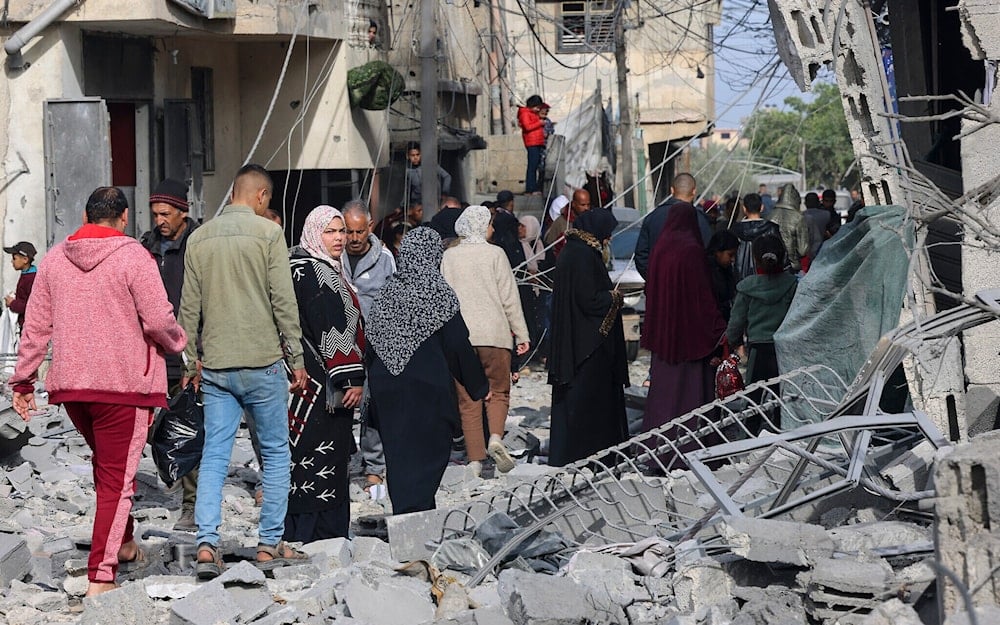OCHA says 'Israel' impeding delivery of humanitarian aid in Gaza
OCHA's chief spokesperson Stephane Dujarric states that recent Israeli "evacuation orders" has made it nearly impossible for aid workers to travel along Salah al-Din coastal road.
-

Palestinians inspect the damage in the rubble of buildings leveled in Israeli strikes in Rafah, in the southern Gaza Strip on February 12, 2024. (AFP)
The United Nations Office for the Coordination of Humanitarian Affairs has warned that the ongoing Israeli military attacks and repeated "evacuation orders" continue to impede the delivery of humanitarian aid in the Gaza Strip.
UN secretary-general's spokesperson Stephane Dujarric stated that including parts of Salah al-Din Road—a vital route for humanitarian missions—in the recent "evacuation order" issued on Saturday for parts of the Deir al-Balah governorate has made it nearly impossible for aid workers to travel along this major road.
Read more: 400 agencies unite in plea to protect civilians, aid staff in Gaza
The new "evacuation orders in Gaza impact the Maghazi refugee camp, five schools, 14 water facilities, and 10 health sites," said Dujarric.
He added that the coastal road is not a viable alternative, noting that the beaches along this route are now crowded with temporary shelters for displaced Palestinians.
As a result, the movement of aid convoys along the coastal road has become extremely slow, and essential supplies and services, such as water transport, are not reaching those in need.
The Director General of the Palestinian Ministry of Health in Gaza Mounir al-Barash announced on Tuesday that the Israeli occupation forces "deliberately obstructed the entry of a UN humanitarian convoy carrying critical medical supplies and fuel" into the besieged Strip.
Read more: UNRWA loses touch with many staff in Gaza, learning of deaths
Al-Barash highlighted that Gaza’s fuel reserves "are only sufficient for the next 24 hours," emphasizing that "the critical shortage of both fuel and medicine severely hinders efforts to save those injured in the occupation's ongoing massacres."
He added that ambulances are now "out of fuel, preventing the rescue of the wounded," accusing the occupation of "deliberately targeting as many displaced people in shelters as possible," further warning that delays in intervention "endanger the lives of the injured," stating, "We rely on God and our resilient health workers to persevere and continue."
In conclusion, al-Barash expressed his gratitude to all the medical delegations arriving from various Arab countries, recognizing their vital support and solidarity during this critical time.

 2 Min Read
2 Min Read








